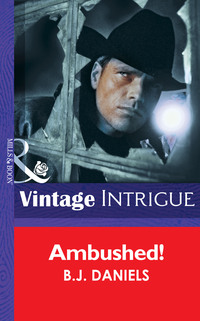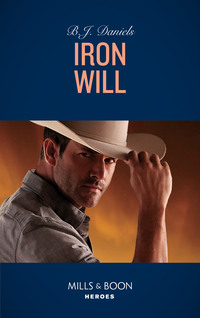
Полная версия
Premeditated Marriage
“Got to, Helen. Can’t afford a new one. Goin’ to have to plow snow with it pretty darned soon. Maybe Charlie’ll have a look at it when she gets the time,” he said, wagging his head.
Helen, who no doubt was the café’s owner, looked over in Augustus’s direction. “Get settled in at Murphy’s, Gus?”
Gus. It wasn’t bad enough that Charlie Larkin had told everyone in town about him, she hadn’t even gotten his name right. “It’s Augustus,” he said and gave Helen a smile to soften it. “Augustus T. Riley.”
She chuckled as if he’d said something funny, obviously not recognizing the name. “Well, welcome to Utopia. You’re the big news of the day.”
“Slow news day, huh,” he said, seeing an opening. “I would think that fellow who got pulled out of the lake would still be news.”
“Shoot, that was over a week ago. Old news now and not the kind we like to be known for.” She stepped back into the kitchen and proceeded to finish up some cooking she had going on. “Trudi, your orders are up.”
He wondered what kind of news Utopia liked being known for.
“Here ya go, T.J.,” Trudi said cheerfully as she slid a plateful of food across the counter to the guy sitting alone. She wasted a big smile on him. He didn’t even bother to look up at her, just grunted something Augustus couldn’t hear.
Trudi stood there for a moment, then went to deliver a couple of burgers to Leroy’s table and brought Augustus his salad. “Was creepy though, you know, if you think that his body was in the lake all this time,” she said, picking up the thread of the earlier conversation.
“Since last fall,” he agreed, trying not to think about it. “So, did you know him?”
She shook her head. “He wasn’t from around here.”
Augustus knew that. Josh Whitaker had been an emergency-room doctor in Missoula at the hospital. He was thirty-four, two years younger than Augustus, single and lived with two other residents in a large house near the hospital. His death was being investigated as possible foul play after the coroner reported Josh had been hit in the back of the head with a blunt object, his car then pushed into the lake where it sank from view.
No one knew what Josh Whitaker was doing in Utopia, thirty miles from the nearest real town. In this part of Montana, that thirty miles felt like three hundred. Augustus had never felt such isolation and couldn’t imagine why Josh had come up here all the way from Missoula. Josh had been missing for almost a year, his body finally discovered in late September by two local teenagers, just before the cold spell.
But what Augustus knew that the press didn’t, according to phone company records, was that Josh had received two phones calls from Utopia just before he disappeared. Both from the pay phone outside Larkin & Sons Gas and Garage. He’d almost placed several phone calls to that pay phone, along with another to a C. Larkin that same day, the call to C. Larkin less than a minute in length, making Augustus wonder if Josh had reached Charlie. Her name had also showed up in an old date book of Josh’s with a notation beside it: help line.
What Augustus needed was to find out what Charlotte “Charlie” Larkin’s relationship had been with Josh Whitaker, how they’d met no doubt through Josh’s statewide help line program, why Josh might have come to Utopia to see her and why she might want him dead. No small task.
But hadn’t Emmett mentioned that Charlie Larkin had to quit college when her father had his heart attack? Was it possible she and Josh had met while she was attending the University of Montana in Missoula? That was where Josh had started his first help line.
“What a terrible way to die,” Trudi was saying. “Drowning.” She shivered.
“I heard it’s not that bad, like going to sleep,” the knitting woman said.
“Marcella, I think you’re confusing drowning with hypothermia,” Helen said.
“Starvation,” Leroy said. “I guess that or a quick heart attack is the way to go.”
“Beats putting a gun to your head,” Helen agreed.
An argument ensued over what caliber gun worked best. Augustus tried to steer the conversation back to the body in the lake. “Do they know what the drowned guy was doing here?”
The customers looked to Helen as if anyone in town would know, it would be her. She shrugged.
“Isn’t this lake off the beaten path?” Augustus asked.
“Yeah, but maybe he’d heard about those campers that were eaten by that grizzly and wanted to see the place,” Trudi said, all big-eyed.
Helen grimaced. “That’s pretty morbid and it was years ago. I can’t imagine he would have even heard about it.”
Augustus remembered from the national news stories when he was a senior in high school and working on the school newspaper. Mostly he remembered because there were only a few things that ate you. Sharks. Gators. Grizzlies. “Didn’t I read in the paper that he was seeing a local woman?” he lied, drawing the conversation back to Josh Whitaker.
“Wouldn’t know anything about that,” Helen said, going back to the kitchen to check on his chicken-fried steak. A few minutes later she handed Trudi a huge plate overflowing with meat, gravy and mashed potatoes and a side of canned peas through the pass-through.
“Charlie fixing your car, huh?” Helen asked him, returning to her spot at the counter across from Marcella.
“In the morning,” he said, taking the opening. “I heard she’s a pretty good mechanic.”
“Best in five counties,” Helen boasted as she lit another cigarette, definitely at home with the place, with herself.
Best in thirty miles, he could buy. Five counties though? That he seriously doubted.
“If anyone can get your car running, it’s Charlie,” Leroy agreed.
Anyone with even a little mechanical training could get his car running, if they wanted to. And if Charlie Larkin was as good as everyone in this town claimed, she would know that. The thought disturbed him.
“Yep, they don’t come any better than Charlie,” Helen agreed. “I wouldn’t be surprised if she was over there right now working on your car.”
He wouldn’t put money on that.
“Like that time she found that family broke down outside of town,” Marcella said, knitting as she talked. “Remember that bunch? Must have had a dozen kids in that old motor home. Charlie took them food and got the rig running, though heaven only knows how.”
Helen was nodding, obviously savoring the story. “They didn’t have two nickels to rub together, had spent all their money on gas trying to get to the coast—and a job the father said he had waiting for him. Sounded like a story to me, but you know Charlie.”
He didn’t. But he sure wanted to. He took a bite of the steak. It was delicious.
“Charlie told him he could pay his bill after he got settled.” Helen shook her head. “I would have sworn she’d never see a dime of that money, but a year later she gets a check—with interest. Don’t that beat all?”
“That’s one hell of a story,” Augustus agreed, wondering how much of it was now Utopia legend and how much of it was true.
“Oh, we could go on all night about Charlie,” Helen said.
“Like the way she’s helped Earlene with that baby,” Marcella said. She glanced back at Augustus. “Earlene’s a single mother. The baby’s father’s dead.”
Charlie Larkin sounded like a saint. He’d found out a long time ago, though, that the nicest, most charitable person in the world was still capable of committing murder. But it certainly made him all the more curious about Charlie. And all the more determined to get her.
The twenty-something man at the counter Trudi had called T.J. suddenly pushed his half-full plate back, slapped down some bills on the counter and stalked out, grabbing his coat before disappearing through the door without a word.
“Who was that?” Augustus asked Trudi quietly when she came over to his table to refill his coffee cup.
She glanced toward the closing door. “Oh, that’s just T. J. Blue.”
“He seemed upset.”
“He’s always upset when Charlie Larkin’s name comes up,” she whispered and then went off with the coffeepot to refill cups.
Upset when Charlie Larkin’s name came up, was he? Augustus made a point of reminding himself to have a talk with this T. J. Blue who hadn’t said a word when Helen and everyone else were going on about the virtues of Charlie Larkin. Interesting.
“Emmett told me that Charlie had to come home from college early and take over the garage after her father’s heart attack,” Augustus said to Helen who was clearing away T. J. Blue’s dishes after his abrupt departure.
Helen nodded, but said nothing, as if he was on the verge of asking too many questions.
“She worked in the garage alongside her father every summer,” Leroy said. “Burt insisted she get an education although everyone in town knew he hoped she’d come home and work with him after she graduated.”
“What was she majoring in at Missoula before she had to quit?” he asked casually, taking a bite of his steak. It could have been cardboard for all the attention he paid it as he waited for someone to confirm his theory that Charlie Larkin had gone to college in the same town Josh Whitaker was a doctor.
Helen frowned, looking suspicious.
“Business, wasn’t it, Helen?” Marcella asked, looking up from her knitting. “But she didn’t go to school in Missoula. She went to Bozeman.” Miles apart.
“I thought Emmett told me—never mind,” Augustus said. “I must have heard wrong.” So how had they met?
Charlie had to be the reason Josh Whitaker had come to Utopia and ended up in Freeze Out Lake last fall. Augustus would stake his reputation on it. But what was their connection? The obvious female-male one? Or something else?
A thought struck him like a brick. The use of the pay phone at the garage—rather than her home phone. “Charlie isn’t married, is she?”
Helen studied him for a long moment. “No.” Her gaze said he’d just asked too many questions.
“She sounds like someone I’d like to get to know better.” He shrugged and grinned his you-know-us-guys grin.
Helen seemed to relax a little. She obviously knew how men could be. She went around the counter to sit next to Marcella and proceeded to tell her about some yarn she’d found on sale in Missoula.
“Got all that firewood split and stacked yet for winter?” Leroy asked the man across from him.
“See ya, Helen,” the woman in the first booth said as she and her husband left, leaving money on the table.
“Take care, Kate. You, too, Bud.”
Augustus concentrated on his food, listening to the conversations move from one mundane topic to the next. No one paid him any attention. He must be old news.
But he saw Trudi watching him when she thought he wasn’t looking and he knew, the way he always knew, that here was someone who had something she was dying to tell him.
The chase always made him ravenous and this one was no exception. It wouldn’t be easy with most of the town trying to convince him Charlie Larkin was a saint. But at least one person in town wasn’t wild about Charlie: T. J. Blue. And Augustus had a feeling he’d find more. He smiled and dug into his dinner.
HE’D EATEN all he could and shoved his plate away when Trudi came over to his booth. She was all business, making a project out of writing up his bill, then taking his napkin to write something on it before sliding it and the bill under the edge of his saucer. She refilled his cup with coffee he’d just said he didn’t want. She seemed nervous.
He could feel Helen’s gaze on them, watching eagle-eyed, and Trudi must have felt it, too. She huriedly cleared up his dishes, everything but his coffee, and disappeared back into the kitchen again.
He stared after her for a moment, then plucked the bill and napkin from under the edge of the saucer. Along with the six dollars and fifty cents he owed for dinner, she’d written on his napkin: “I get off at ten.”
He glanced at his watch. That would give him time to get ready for her. He pulled out his pen and wrote, Murphy’s, No. 5 on the napkin, then dropped a ten on top of the bill. With luck Trudi had something good to offer him.
As he left the café, Helen called after him, “See ya, Gus.” He could feel her watching as he walked past the front window of the café. He wondered how long it would take her to call Charlie Larkin and tell her he’d been asking personal questions about her. The thought pleased him, since he’d only just begun.
I’m coming for you, Charlie.
Chapter Four
Charlie pushed through the kitchen door of the old farmhouse she shared with her mother and aunt, a huge box of produce in her arms.
“Let me guess. Wayne Dreyer’s old Chevy broke down again.” Aunt Selma shook her freshly-permed, gray head as she walked over to the table to peer inside the box Charlie set down. Her aunt looked small and frail next to the huge box, older somehow.
“I’ve got another one in the van,” Charlie said and went back out to get it through the falling snow, thick as cotton ticking, the old farmhouse and the surrounding trees a blur of white.
Her aunt was giving her that look when she came back in.
“Winter squash, apples and pumpkins,” Charlie said, sliding the second huge box onto the table next to the first.
“I can see that,” Selma said. “There’s enough squash alone to last three winters. And pumpkins—Land-sakes, what will we do with all of them? You’d better hope that boy’s car doesn’t break down again until berry season.”
“He got the idea that we eat a lot of pumpkin pie,” she said, shrugging out of her coat. This time last year the water pump had gone on Wayne’s Chevy and she’d taken pumpkins as payment, going on about her Aunt Selma’s need for fresh pumpkin for her pies.
Her aunt shook her head. “You remind me of your father.”
“Thank you,” Charlie said, going to hang her coat on the hook by the back door.
“That wasn’t a compliment.”
Charlie turned to smile at her.
Her aunt’s gaze softened. “Is anything wrong?”
“No.”
Selma waved that off. “I know you, girl,” she said, frowning. “Something’s happened.”
Some people in town said Selma had The Gift, that she could practically look into your head and see things that no one else could—including the future.
There had been times when Charlie wasn’t so sure they weren’t right. But mostly she believed her aunt just paid more attention to the little things, things other people maybe didn’t take the time to notice. Not that it wasn’t damn eerie on occasion. And a real pain if you preferred to keep your problems to yourself.
The phone rang. Charlie tried to hide her relief as she gave her aunt a shrug and picked up the receiver from the wall phone.
“That guy whose car broke down—Gus—he just left,” Helen whispered. “I thought you’d want to know.”
“Really?” she said and smiled at her aunt, knowing there was more.
“He was asking a lot of questions.”
“About what?” she asked, trying to keep her voice light.
“About that man who drowned in the lake and about you.”
Charlie let out a little laugh and turned away from her aunt. “Well, you know what they say about curiosity.”
“That’s not the worst part,” Helen said. “Trudi warmed right up to him. You know how she is.”
Everyone knew how Trudi Murphy was. The stranger probably would know soon enough.
“I think you should try to find out something about him,” Helen said. “I don’t like the looks of him.” She didn’t like the looks of most men. Blame it on four bad marriages and a weakness for losers. “What’s he wanting to know about you for anyway?”
“I don’t know, but I’m sure it’s nothing.” She wished that were true.
“I hope you’re right,” Helen said. “Once his car is fixed, maybe he’ll leave. Maybelle said he only paid for one night.”
“That’s good.” But she had a feeling it didn’t mean a thing. “Thanks for letting me know.” She hung up and turned, feeling her aunt’s intent gaze.
“Charlotte—” Selma began.
“What in the world?” her mother said from the doorway. Vera’s eyes widened with wonder, as if the boxes on the table were brightly wrapped presents instead of vegetables from the gourd family and the fruit that destroyed Eden.
Her mother was smaller than Selma and lacked her sister’s strength. Vera had always been the fragile one, her pale skin almost translucent, her hair now downy feather white.
Aunt Selma gave Charlie a warning look, one she knew only too well. Don’t upset your mother. The words should have been stitched on their living-room pillows.
“I’ve been wanting to make some pumpkin pies,” Selma said.
Vera Larkin smiled dreamily. Her cardigan sweater had fallen off one shoulder. “I do love pumpkin pie. With ice cream.” She frowned. “Or is it whipped cream?”
“Either sounds good,” Selma told her as she pulled her sister’s sweater around her thin shoulders.
Charlie noticed that her mother’s slippers were on the wrong feet as she watched the two leave the room. She closed her eyes, the pain too intense. It broke her heart to see her mother like this and growing worse each day.
If it wasn’t for Aunt Selma… It was hard to believe that Selma was almost seventy, the older of the sisters. She’d never married. When Charlie was a child, she’d found a yellowed wedding dress in the attic. Her mother had told her a romantic story about Selma falling wildly in love with a soldier. They were to be married, but just days before he was coming home, his plane was shot down. Devastated, Selma had sworn never to love another man.
Of course, there were people in Utopia who swore the story was as phony as Trudi Murphy’s bust. But then how did Charlie explain the wedding dress still in the attic? If Selma’s “sight” was to be believed, maybe Selma had known long ago that Vera was going to need her and that’s why she’d never married. Maybe Selma had called off the wedding after another one of Vera’s miscarriages had laid her up. It would be like Selma.
Vera had never been strong, according to Selma. She’d married Burt at eighteen full of hope, but quickly became weakened both physically and spiritually by miscarriages and disappointments, until finally Charlie was born. Vera was almost forty by then.
Just twenty-one years later, she lost Burt to a heart attack. It had been a blow that had left her mother crippled emotionally and brought Charlie racing back from college to take over the garage. That had been four years ago. Aunt Selma had been there, though, each time Vera needed her. It wasn’t surprising that Selma had been the one to notice Vera’s Alzheimer’s first.
“Are you warm enough?” Selma was asking Vera in the living room. “It’s snowing out. Maybe I should throw more logs on the fire. Would you like that?” Selma glanced over her shoulder as she helped Vera into a wingback chair in front of the fireplace, her look clear: We will talk later.
Charlie had no doubt of that. Selma and Vera had already eaten dinner. Charlie could smell the chicken and dumplings Selma had saved her. There was a warm apple pie, too.
Charlie had tried to get Selma to slow down.
“Cooking and caring for my sister is what I’ve always done,” Selma had snapped. “Let me enjoy myself and don’t get in my way.” She’d softened the words with a smile. “You know how much I love doing this.”
Charlie had nodded and stayed out of her way, helping out as much as she could behind the scenes.
While Charlie ate, Vera chattered away about things that had happened forty years ago. Selma was too quiet, as if she could read Charlie’s thoughts, which kept returning to the stranger in town.
After dinner and dishes, Charlie got her coat from the peg and went out on the porch, hoping the cold night air would clear her head. It wasn’t long before she heard the soft creak of slipper steps on the floorboards behind her.
“Well?” Selma’s voice sounded hoarse with worry.
She didn’t turn around. “It’s nothing.” She tried to sound unconcerned.
“Then why do you seem…scared?”
Scared? Is that what this was? This quaking inside her. This high-frequency jitter, like being connected to a high-voltage battery all the time. She wouldn’t have been surprised if she started throwing off sparks. At first it had been a low buzz. Almost a nervous energy. Anxiety. Worry. But now she vibrated with what had to be more than fear. She hugged herself as if that would still her terror. At least long enough to reassure her aunt.
“There’s something I need to ask you.” Selma seemed to hesitate. “Does this have anything to do with that young man they pulled from the lake?”
Charlie turned slowly to look at her aunt. Selma stood in a pool of light from the kitchen window wearing a thick wool sweater over her polyester pantsuit. Charlie remembered her mother secretly knitting the sweater several years ago. A Christmas present in Selma’s favorite colors, browns, golds and reds.
Even from here Charlie could see the mistakes in the pattern. The signs had been there that long ago, only Charlie hadn’t recognized them. But then, it was so hard to admit that someone you loved was losing her mind.
“Yes,” Charlie said. It had everything to do with Josh Whitaker.
Selma reached for the porch railing and closed her eyes, her bare hand pale and bony, veins blue against the white skin, frail.
Charlie started to reach for her, afraid her aunt was going to collapse. But she drew back her hand at the last minute as Selma’s eyes snapped open.
Before she saw the tears, Charlie was going to tell her aunt everything. The weight of holding something like this inside just seemed too much to bear alone any longer. But the tears stopped her. Selma had always been strong, but this was too much of a burden for anyone, especially someone you loved.
“I’m just upset because the death reminds me of when Quinn was killed,” Charlie said quickly.
The relief in Selma’s expression was worth the half lie Charlie had had to tell.
“You still think about Quinn Simonson?” her aunt asked, sounding surprised but stronger. “That was so long ago and I didn’t think your relationship with him was that serious.”
Charlie shook her head. “No, but he was my first boyfriend.”
“The Simonsons aren’t giving you a hard time again, are they?” Selma demanded fiercely, reminding Charlie of a bantam rooster. “Those people. They just want to blame someone for their golden boy’s death and you’re an easy target.”
Golden boy only fit Quinn because of his blond good looks and because Phil and Norma Simonson had put him on a pedestal above even their oldest son, Forest. To them, Quinn could do no wrong. Unfortunately, Charlie knew better.
“It’s not the Simonsons,” Charlie said. “This latest accident at the lake just brings back all the awful memories from before.” Not that the Simonsons had let her forget for a moment over the past seven years what they believed she’d done—killed their son.
“I’m so sorry this had to happen now,” Selma said. “You have enough to concern yourself with.”
“I’m fine.” She hugged Selma, tears springing to her eyes at the frailty she felt in her aunt’s wiry-thin frame.
“Oh, Charlie.” Her aunt brushed a dry kiss across her cheek. “You have taken on so much with your mother and me.”
“That’s not true,” she said. “You and Mom have always taken care of me and now you have Mom to take care of as well.”
Her aunt pulled her sweater around herself, her expression unconvinced. How much did she know? Or did she just suspect the truth?
“It’s cold out here,” Charlie said. “You should get back in before Mom misses you.” She knew that, more than the cold, would get her aunt back inside, keep her aunt from asking any more questions.
With obvious reluctance, Selma scuffled back into the house without another word.
Charlie turned to look out at the snow, filled with relief—and regret. The snow had begun to stick and pile up. The way a lot of things in life tended to pile up. When Josh’s body was pulled from the lake, she’d felt paralyzed with fear. She hadn’t known he was in town. Still didn’t understand what could have brought him up here considering that she hadn’t seen or spoken to him in four years.









